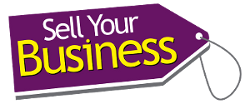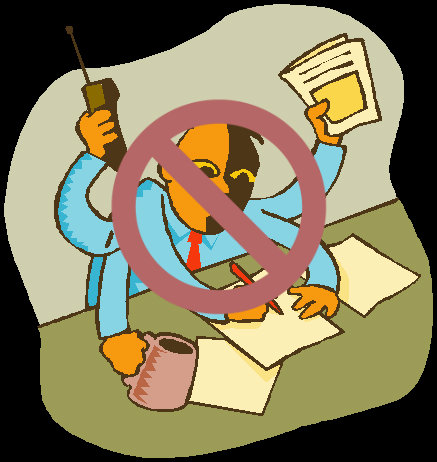
 Business Valuation Essentials.
Business Valuation Essentials.
Recently, I came across a statistic on an online business sales website stating that 66% of business owners don’t know what their business valuation. Admittedly, I didn’t know how valuable my business was until I took a business growth course. During the ‘money’ section of my studies I was pleasantly surprised to discover my company was worth several millions. Unfortunately for many of my classmates, they discovered just the opposite.
Do you know how much your business is worth? If not, let me walk you through some of the elements that affect your value and finish off with an easy calculation you can do.
What affects your business valuation
Business Model – There are several business models however, to give you a quick example…a company that has a reoccurring revenue model will be more valuable than an outfit that has to continuously pitch for new business. Reoccurring revenue provides a company with an embedded value, or in other words, a strong certainly for future profits. An agency type model, for example, has to rely on winning future work introducing a higher risk (and harder work) for profit growth.
Industry Sector – Some industry sectors are valued higher than others mainly due to their growth potential. Technology businesses created in a way that can scale nationally/globally have the ability to provide huge value and in turn create huge value. On the opposite side of the scale, a local business (such as a used car dealership), will have a capped value simply due to the industry and obvious growth limits.
Age of Business – Older businesses with a track record of growing profits will be valued higher than younger businesses. An older business will be in the position to demonstrate more proof of stability and profitability.
Circumstances of Sale – If you need to sell because of health issues, poor performance or any kind of personal problem your value could be drastically impacted. Buyers love desperate sellers as they use misfortune to their advantage. The more desperate the seller is, the lower the value may drop.
Tangible Assets – A company that has equipment, buildings and/or stock can be valued by its assets. If you’re sitting on quite a few tangible assets, that alone provides a base figure to start your valuation. Service companies, on the other hand, often have very few tangible assets.
Current Economy – If the economy is suffering and you want to sell a luxury business it’s highly probable that a sale will be difficult. On the other end of the spectrum, parting with a fast food business during a recession could come easy – bad economies cause an increase in fast food consumption.
Product/Service Lifecycle – If your product or service is in demand, your value will go up. If however, you’re declining business your value will suffer. Think of the difference between tablet devices and CD’s. One is on the upward trend and the other one has been in massive decline over the last several years.
Financial Performance – I’ve saved the most important for last. Financial performance is key. If your historical management information reports and accounts prove exponential growth, by definition, you’re a valuable company. Before selling, you want to do everything possible to ensure that your company is a growth machine. Otherwise, you can still sell, however the value of the business will be less and you’ll have to prove its value in other terms or demonstrate how particular changes will positively impact the growth.
Your Business Valuation and YOU
Before calculating a ballpark valuation for your business, there’s one element that is very important to consider. Your business is more valuable if it can run without you. If you had to take a 6 month sabbatical being completely cut off from your company starting right now, would you still have a company at the end of that duration? Buyers don’t want to buy you because you’re busy running the business – they want to buy a company that runs regardless as to whether you (or any key staff member) are there or not. Keep this in mind as it’s often on of the largest obstacles in quickly exiting a business.
There are loads of other facts that affect a business valuation. It depends on what the buyer wants and their acquisition reasons. Some buyers want a proven return on investment whereas other buyers are looking to expand their market share or simply want an in-road to your customer database. Lot’s to think about – eh? Let’s take a look at calculating the ballpark value of your business.
Value your Business with the Business Multiplier Calculation (Net Profit Multiples – P/E Ratio)
Some industries have multiples associated to them. These multiples are used in conjunction with a company’s’ profit after tax. Many use a multiple between 1 and 10 whereas some technology companies use a multiple of 25. So, if your profit after tax is £1,000,000 and your industry multiple is 4, your estimated value would be £4,000,000.
You can also create a multiple yourself by considering your yearly return on investment. Let’s say that you consistently get a 20% return per year. 20% is one fifth of 100% therefore providing a multiple of 5. With the above example, your business would then have an estimated value of £5,000,000. Once you have an estimated value you then need to consider the numerous elements that can then affect that number.
Some factors, like having a database of 100,000 customers will increase your value as it’s an asset whereas other factors, such as the business relying heavily on you, will drastically decrease it.
If you are just starting on your journey to selling your business there’s a lot to think about. The thing to keep in mind is that you’re not alone – there’s many of us out there that have successfully and profitably exited our business.
For a deeper understanding of the whole start-to-finish business sale process, please start your journey by reading the FREE Chapter: “How To Sell A Business: The #1 guide to maximising your company value and achieving a quick business sale”
Kim Brown, Co-Founder of Business Wand, helps business owners navigate their way through the start to finish process of selling a business. Her specialty is to help owners cut costs and increase profits prior to sale. To understand how you can sell your business quickly for the highest sales price, purchase the book, “How To Sell A Business: The #1 guide to maximising your company value and achieving a quick business sale”


 Working On Your Business Not In It.
Working On Your Business Not In It.
 5 Tips You Must Know Before Selling Your Business!
5 Tips You Must Know Before Selling Your Business!